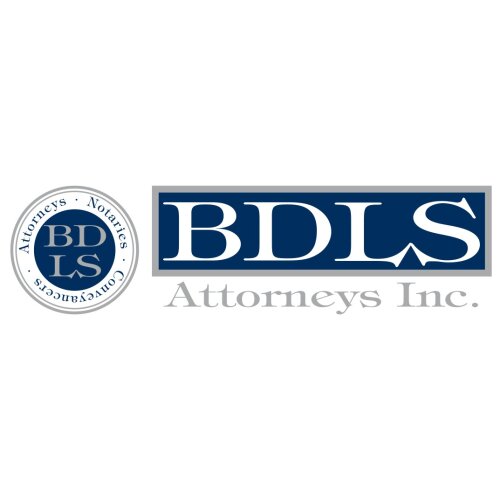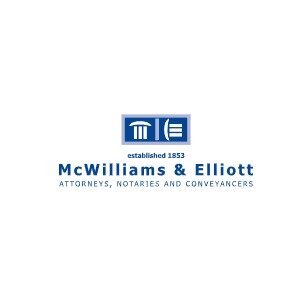Best Energy, Environment & ESG Lawyers in Port Elizabeth
Share your needs with us, get contacted by law firms.
Free. Takes 2 min.
List of the best lawyers in Port Elizabeth, South Africa
About Energy, Environment & ESG Law in Port Elizabeth, South Africa
Energy, Environment, and ESG (Environmental, Social, and Governance) law is a rapidly evolving legal field in South Africa, including in the city of Port Elizabeth which is now officially known as Gqeberha. This area of law governs how businesses, individuals, and the government interact with the natural environment, utilise energy resources, and uphold standards of sustainable and ethical practice. The legal framework aims to promote responsible energy use, protect the ecosystem, and ensure that companies operate in a manner that benefits society as a whole. In Port Elizabeth, given its coastal location and ongoing urban development, these laws play a critical role in shaping sustainable growth, managing industrial emissions, protecting marine and terrestrial biodiversity, and supporting the shift towards renewable energy sources.
Why You May Need a Lawyer
Seeking legal assistance in Energy, Environment, and ESG matters can be crucial for various reasons in Port Elizabeth. You may need a lawyer if you are:
- Starting a business or development project that requires environmental impact assessments or environmental authorisation
- Facing compliance challenges in energy efficiency, waste management, or water use
- Encountering disputes over land use, pollution, or coastal zone management
- Looking to invest in renewable energy installations such as solar or wind projects
- Responding to enforcement actions or penalties from regulatory authorities
- Need guidance on ESG reporting, disclosure requirements, or sustainability frameworks
- Seeking to challenge or appeal decisions by environmental regulators
- Requiring advice on environmentally responsible corporate governance or sustainable supply chain practices
Legal professionals with expertise in these areas can help you understand your obligations, advocate for your interests, and ensure compliance with South Africa’s complex regulations.
Local Laws Overview
Several key legal and regulatory frameworks govern Energy, Environment, and ESG issues in Port Elizabeth.
- The National Environmental Management Act (NEMA): This central piece of legislation sets out principles for decision-making on matters affecting the environment. It requires environmental impact assessments for certain activities and establishes the “polluter pays” principle.
- The National Energy Act: Provides the legislative basis for energy planning, efficiency, and renewable energy development in South Africa, including permissions and standards relevant to local projects.
- The Integrated Coastal Management Act: Governs use, development, and protection of South Africa’s coastline, relevant to Port Elizabeth’s numerous coastal developments.
- Municipal By-Laws: The Nelson Mandela Bay Municipality has by-laws addressing waste management, water conservation, noise pollution, and urban development.
- Occupational Health and Safety Act: Affects ESG obligations related to workplace safety and environmental hazards.
- Companies Act and King IV Report: Guides companies on ESG and sustainability-related reporting and corporate governance standards.
Understanding which laws apply to your circumstances and how to comply with them can be complex, as overlapping national, provincial, and local requirements often exist.
Frequently Asked Questions
What is an Environmental Impact Assessment and when is it required?
An Environmental Impact Assessment (EIA) is a process that identifies potential environmental effects of a proposed project or development. It is required before commencing activities that may significantly affect the environment, such as construction, land clearance, or certain industrial developments.
Who enforces environmental regulations in Port Elizabeth?
Environmental regulations are enforced by the Department of Forestry, Fisheries and the Environment (DFFE), provincial authorities, and the Nelson Mandela Bay Municipality’s environmental management unit.
What are common penalties for environmental non-compliance?
Penalties can include fines, enforcement notices, remediation orders, or even criminal prosecution depending on the severity and nature of the contravention.
Do I need special permits for renewable energy installations?
Yes, certain renewable energy projects, such as large-scale solar or wind installations, require permissions from the Department of Mineral Resources and Energy and may also need local municipal approval and environmental authorisation.
What does ESG mean for local businesses?
ESG stands for Environmental, Social, and Governance. For businesses in Port Elizabeth, ESG involves adopting sustainable operational practices, ensuring social responsibility, and maintaining transparent governance, which can affect funding, reputation, and legal compliance.
How can a lawyer help with ESG reporting?
A lawyer can advise businesses on regulatory requirements, assist in preparing ESG reports aligned with local and international standards, and help mitigate legal risks associated with disclosures.
Can members of the public challenge developments they believe are harmful to the environment?
Yes, the public may participate in consultation processes, lodge objections, or even initiate legal action against developments they believe violate environmental laws, often with the help of legal advisors.
Which local by-laws most affect residential energy and water use?
By-laws concerning water restrictions, energy efficiency (such as installation of solar geysers), noise pollution, and waste management are key for residents in Port Elizabeth.
Are there incentives for adopting green technology or practices?
There are periodic government and municipal incentives or rebates for adopting green technologies, such as solar panels or water-saving devices, but availability and eligibility should be checked with local authorities or a legal advisor.
Can environmental offences lead to criminal charges?
Yes, certain breaches of environmental law, such as illegal dumping or significant pollution incidents, can result in criminal prosecution, including personal liability for company directors.
Additional Resources
Individuals and businesses seeking more information or assistance with Energy, Environment, and ESG matters in Port Elizabeth can contact or refer to:
- Department of Forestry, Fisheries and the Environment (DFFE): National authority on environmental law and policy
- Eastern Cape Department of Economic Development, Environmental Affairs and Tourism (DEDEAT)
- Nelson Mandela Bay Municipality Environmental Management Division
- Department of Mineral Resources and Energy
- South African National Energy Development Institute (SANEDI)
- Legal Resources Centre or other local non-governmental organisations specialising in environmental advocacy
- South African Local Government Association (SALGA) for municipal by-law information
Next Steps
If you believe you need legal advice or representation related to Energy, Environment, or ESG laws in Port Elizabeth, consider the following steps:
- Identify the specific issue or legal question you face, such as compliance, permit applications, or dispute resolution
- Gather all relevant documents, permits, correspondence, and notices you have received
- Consult with a qualified lawyer or law firm experienced in environmental and energy law
- Prepare questions for your legal advisor, focusing on your obligations, options, and the potential legal risks involved
- Engage with local or national governmental resources for information and, if appropriate, lodge formal applications or submissions with their assistance or guidance
Taking early and informed legal advice is essential to avoid costly penalties, delays, or enforcement actions, and to ensure your activities contribute positively to the community and the environment.
Lawzana helps you find the best lawyers and law firms in Port Elizabeth through a curated and pre-screened list of qualified legal professionals. Our platform offers rankings and detailed profiles of attorneys and law firms, allowing you to compare based on practice areas, including Energy, Environment & ESG, experience, and client feedback.
Each profile includes a description of the firm's areas of practice, client reviews, team members and partners, year of establishment, spoken languages, office locations, contact information, social media presence, and any published articles or resources. Most firms on our platform speak English and are experienced in both local and international legal matters.
Get a quote from top-rated law firms in Port Elizabeth, South Africa — quickly, securely, and without unnecessary hassle.
Disclaimer:
The information provided on this page is for general informational purposes only and does not constitute legal advice. While we strive to ensure the accuracy and relevance of the content, legal information may change over time, and interpretations of the law can vary. You should always consult with a qualified legal professional for advice specific to your situation.
We disclaim all liability for actions taken or not taken based on the content of this page. If you believe any information is incorrect or outdated, please contact us, and we will review and update it where appropriate.
Browse energy, environment & esg law firms by service in Port Elizabeth, South Africa
Port Elizabeth, South Africa Attorneys in related practice areas.










